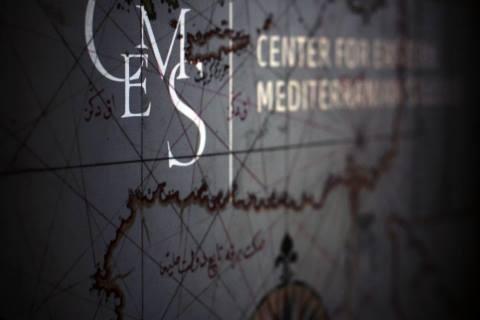The Center for Eastern Mediterranean Studies (CEMS) promotes the study of Mediterranean historical, philosophical, religious, imperial, and literary traditions. Its members, academic events, and research projects pursue diverse topics, ranging from ancient Greek philosophy to modern Turkish literature. Through its activities, the Center aims to foster innovative research on the region and, moreover, to sustain a community of students and scholars engaged in common intellectual pursuits. In recent years, CEMS has been involved two ERC projects: one on Religious Confessionalization in the Ottoman Empire (OTTOCONFESSION), and another on the dynamics of Jewish-Christian relations between the Mediterranean and the Indian Ocean (JEWSEAST).
CEMS offers students the opportunity to join the Center as members and to participate in the Advanced Certificate Program (EMS). Additionally, CEMS provides a number of student research grants each year for field work and language study.
In terms of teaching, CEMS faculty currently offers a non-degree specialization in Eastern Mediterranean Studies under the auspices of the Departments of Medieval Studies and History.
All CEU students with a research interest pertaining to the geographical, chronological, and thematic scope of CEMS are strongly invited to request membership of the center and become eligible for the center’s research & travel grant scheme.
